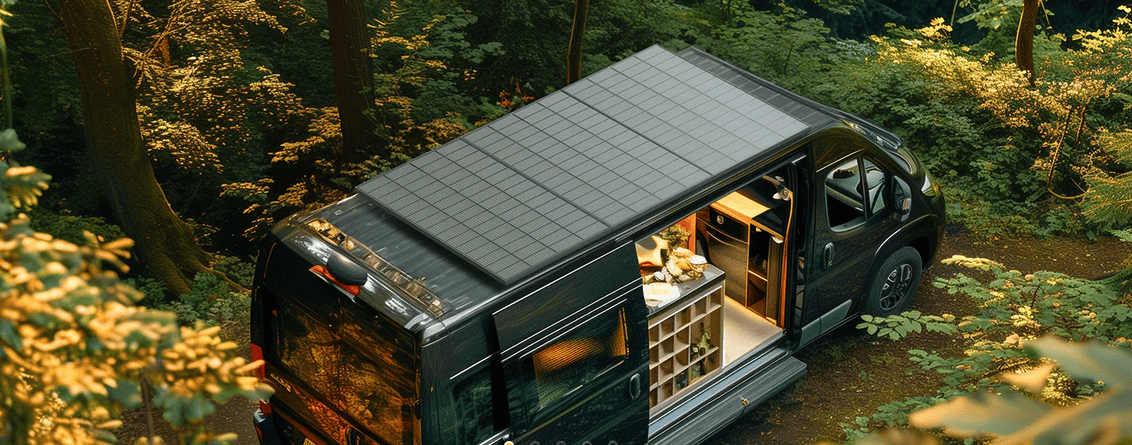As the world continues to embrace renewable energy, solar power has emerged as a leading solution for sustainable and efficient electricity generation. Central to this movement are solar panels, with the versatile 300W solar panels playing a pivotal role in meeting diverse energy needs. Whether for residential, commercial, or off-grid applications, these technologies offer scalable solutions for powering the future while reducing environmental impact.
The Basics of Solar Panels
What Are Solar Panels?
Solar panels are devices composed of photovoltaic (PV) cells that capture sunlight and convert it into direct current (DC) electricity. This electricity is then converted into alternating current (AC) by an inverter, making it usable for homes, businesses, and other applications.
How They Work
When sunlight strikes the PV cells in a solar panel, it generates an electric field that produces electricity. The efficiency of this process depends on factors like the type of solar panel, sunlight intensity, and panel orientation.
Benefits of Solar Panels
- Renewable Energy Source
Solar panels harness the sun’s energy, a renewable resource, reducing reliance on fossil fuels and lowering greenhouse gas emissions. - Cost Savings
By generating electricity on-site, solar panels can significantly reduce energy bills. In some cases, users can sell excess energy back to the grid, further lowering costs. - Energy Independence
Solar panels allow individuals and businesses to generate their own electricity, reducing dependence on external energy suppliers and increasing resilience against power outages. - Durability
Built to withstand extreme weather conditions, solar panels are a long-term investment with lifespans often exceeding 25 years. - Scalability
Solar energy systems can be expanded by adding more panels, making them suitable for both small-scale residential use and large-scale commercial installations.
What Are 300W Solar Panels?
Key Features of 300W Solar Panels
A 300W solar panel is a medium-capacity module designed to produce 300 watts of power under standard conditions. It is known for its balance between size, efficiency, and affordability, making it a popular choice across various energy applications.
Why Choose 300W Solar Panels?
- Efficiency: 300W panels often feature advanced photovoltaic technology, such as monocrystalline or polycrystalline cells, ensuring high energy conversion rates.
- Compact Design: Ideal for spaces where larger panels may not fit, such as smaller rooftops or portable systems.
- Durability: Engineered to withstand outdoor conditions, these panels are reliable and long-lasting.
Benefits of 300W Solar Panels
- Optimal Energy Production
With a higher wattage than smaller panels, 300W solar panels can generate significant power without occupying excessive space. - Versatility
These panels are suitable for a variety of applications, from residential rooftops to off-grid energy systems, making them a flexible solution. - Cost-Effective
The medium capacity of 300W panels offers a cost-effective option for those seeking an affordable yet efficient solar energy solution. - Ease of Installation
Thanks to their manageable size and weight, 300W panels are easier to install, reducing labor and equipment costs. - Eco-Friendly
Like all solar panels, 300W models reduce carbon emissions and promote sustainable energy use.
Applications of Solar Panels and 300W Solar Panels
1. Residential Energy Systems
Solar panels, including 300W models, are widely used in homes to power appliances, lighting, and heating systems. They help reduce electricity bills and environmental impact while offering energy independence.
2. Commercial and Industrial Use
Businesses can benefit from large-scale solar installations to offset operational costs and meet sustainability goals. For smaller operations, 300W panels provide an efficient and cost-effective solution.
3. Off-Grid Applications
For remote locations such as cabins or farms, 300W solar panels deliver reliable power without the need for grid connectivity. Paired with battery storage, they ensure energy availability even during cloudy days or at night.
4. Portable Power Solutions
Due to their manageable size and efficiency, 300W panels are ideal for portable systems like RVs, boats, and emergency power kits. They provide consistent energy on the go.
5. Agricultural Systems
Solar panels are increasingly used in agriculture to power irrigation systems, greenhouse lighting, and other equipment, helping farmers reduce costs and adopt sustainable practices.
Choosing the Right Solar Panels for Your Needs
1. Assess Energy Requirements
Understand your daily energy consumption to determine the number and type of panels needed. For moderate energy needs, 300W panels can provide a practical and efficient solution.
2. Consider Installation Space
Evaluate the available installation space. For areas with limited room, 300W panels offer an excellent balance between size and output.
3. Factor in Budget
While solar panels require an initial investment, they provide significant long-term savings. Choose a system that aligns with your financial goals while meeting energy demands.
4. Intended Use
For stationary systems, larger panels may be suitable, but for portable or off-grid applications, 300W panels are often the best option due to their versatility.
Maximizing the Potential of Solar Panels
For those with varied energy needs, combining traditional solar panels with 300W models can create a customized and efficient energy system. For example:
- Install 300W panels for portable or supplemental energy needs.
- Use standard solar panels in larger, fixed installations to meet base energy requirements.
This approach allows for tailored solutions that maximize efficiency and adaptability.
Conclusion
BougeRV solar panels and 300W solar panels represent two integral components of the renewable energy landscape. While solar panels provide scalable solutions for large and small energy systems, 300W models offer a versatile, efficient, and cost-effective option for diverse applications.
By investing in these technologies, individuals and businesses can reduce their reliance on fossil fuels, lower energy costs, and contribute to a sustainable future. Whether for residential, commercial, or off-grid use, the adaptability of solar panels ensures they remain a vital tool in the transition to clean energy.

